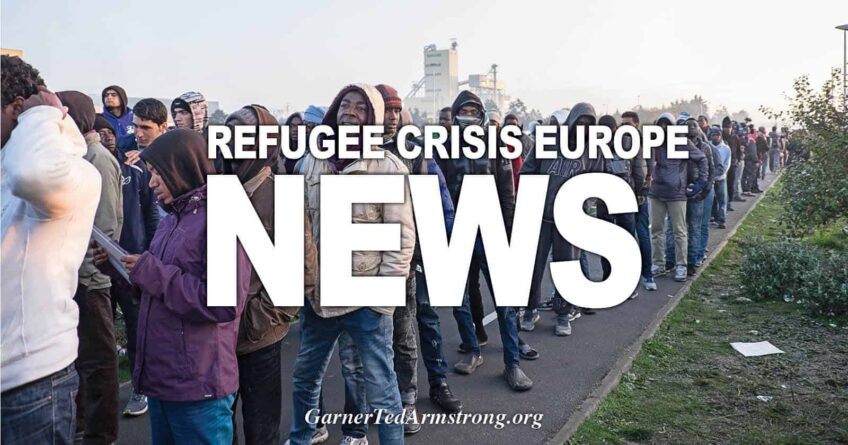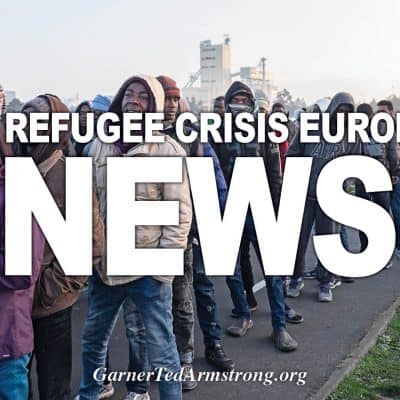
Hungarian Prime Minister Viktor Orban speaks at the plenary session of the European Parliament in Strasbourg on 11 September 2018. [EPA-EFE/PATRICK SEEGER]
Helmut Kohl was a major historic figure, the Chancellor who united Germany and set the foundations of the European Union as we know it: with the Schengen Area, freedom of movement and joint currency, the euro. However, Kohl had one flaw: he did not choose well his protégés. EURACTIV Croatia reports.
After the unification of Germany, a smart physicist with a doctorate in quantum chemistry caught his eye, the daughter of a pastor, whom he introduced to the closest circle and gave a ministerial position. It was Angela Merkel, whom he called “my girl”. Germans now call her “Mutti” – some out of respect and some ironically.
Merkel has left a mark on German and European politics, but proved fatal for the political career of her mentor – when the Christian Democratic Union (CDU) financing scandal broke out in 2000, she pulled the rug from under Kohl’s feet and took over the CDU.
Soon after introducing Merkel to his circle, Kohl noticed a young man who stirred up the masses in Hungary with his rhetoric. Hungarian-born US billionaire George Soros had already provided him with a scholarship, while Kohl saw him as the mould for future Christian democratic leaders in Eastern Europe
But Viktor Mihály Orbán utterly disappointed him. He refused to adopt the euro, and the majority of EPP MEPs turned their backs on him last week over his authoritarian rule in Hungary. However, Kohl once again made an excellent choice of a person who will define European history, only not in the direction he had hoped.
When Orbán said several months ago that he is the successor of Kohl’s politics, the CDU was appalled – they told him Kohl had connected and strengthened Europe, while Orbán was dividing and weakening it.
He drew his political strength mostly from Hungary, where he was prime minister between 1998 and 2002, but did not fare well. When he returned to power in 2010, he decided not to let go of it without a fight, so regulations were changed and the Constitution amended to bring about an electoral system where he could secure a majority in parliament with relatively low support, granted him control of the media, judiciary and the central bank.
He created a network of people who “owe him” because he provided them with profitable positions or lucrative jobs with the state. Members of his family play key roles in the system, as is the case with every authoritarian system, this is the case in Erdoğan’s Turkey and Putin’s Russia, while Donald Trump would like to see the same in the US.
Orbán is unlikely to become influential on the EU level because Hungary is not that strong.
Profiting from migrant crisis
But he knew how to take advantage of the situation: the refugee crisis in 2015 was just what he needed to stir up Hungarians and become head of the Visegrád Group – four countries that refused to take in migrants and opposed Merkel’s policies – which made him a hero of the growing populist-nationalist movement in the EU.
Aware of the opportunity, he waited for spring this year to win elections in Hungary for the third time and start a new political project: to become the leader, perhaps unofficial, perhaps a “grey eminence”, of a new Europe after the European elections next May, the anti-migrant and illiberal Europe.
This summer, he formulated his plans in three stages, culminating in the seven-minute speech he held in Strasbourg, defending his government from reports that openly warn of a threat of violation of democratic freedoms and rule of law in Orbán’s Hungary.
The first stage was implemented on 16 June, when he spoke at a conference held in honour of Helmut Kohl. “Hungary is aware of its strength, influence and mission. For us, Hungary comes first.” If it sounds familiar, it’s because Trump repeated it so many times.
He then started interpreting the vision of Hungary in Europe. “Hungary’s ambition is to live in a strong Central Europe comprised of countries that cooperate tightly.” He listed Poland as an ally and added that another objective is to entice Western Balkan countries to join the EU, “especially Serbia.” Orbán had been very helpful in Croatia’s EU accession in 2013.
Then he defined modern Hungary: “We are the commanders of a border fortress and we know our duty.” The migrant crisis of 2015 is no longer there, realistically, but the fence on the border with Serbia still is.
The ‘commander of the fortress’ noted: “Can there be a compromise on the migrant debate? No, and there is no need for it.” But, it is clear that people protected by the “fortress” have to pay for it – drawing on EU funds cannot be made dependent on adherence to European values.
The speech climaxed with the sentence “When it comes to EP elections in 2019, it would be very easy, for instance, to create a new group of parties from Central Europe or a pan-European anti-migrant group.” Orbán’s Fidesz is still part of the EPP, where it encounters criticism, but it is clear to all that his 11 MEPs (Austrian ÖVP has five) will be important.
Finding new allies
In the meantime, Matteo Salvini took power in Italy in spring. The head of the xenophobic Lega, he is promoting anti-migrant policies and is looking at a large number of MEPs, comparable to the number of MEPs the new head of Democratic Party, Matteo Renzi, brought to socialists in 2014.
With that in mind, Orbán had ideas for the entire EPP: “We have to tackle the difficult task of renewing the EPP and helping it return to Christian democratic roots.”
He addressed the issue on 28 July in Băile Tuşnad, Romania, the location of a summer student camp where he likes to express his political views. That is where he expanded on his idea of a strong Central Europe: “Besides economic strength, Central Europe is a region that has a specific culture. It is different from Western Europe.”
That may mean that Central Europe could go it alone, if the West does not accept these specific characteristics, under Orbán’s leadership. Polish ruling party Law and Justice (PiS) head Jarosław Kaczyński does not have political ambition outside Poland, and others are too weak.
In order for Orbán’s Central Europe to take what he says is its rightful position in the EU, he defined five basic principles: a) defend its Christian culture and reject multiculturalism; b) defend the traditional family model; c) defend strategic sectors of the economy and markets of special importance; d) defend borders and not take in migrants; and e) insist on ‘one nation one vote’ principle when it comes to important issues.
Orbán warned that current Europe is corrupt and lacking direction. This is why it is necessary to establish a new political bloc that will gather all Christian-oriented parties – Christian democracy must rise as the alternative to liberal democracy.
“This means we have to preserve the way of life that results from Christian civilisation. Our duty is not to defend religious norms, but the form that arises from them. This includes human dignity, family and nation because Christianity is not trying to achieve universality by abolishing the nation, but by preserving it,” Orbán said.
After this explanation was leaked to the public, it was clear that a split may be looming between the EPP and Orbán. But even then, EPP head in Parliament, Manfred Weber, asked Orbán to be conciliatory and modest before MEPs (one of the markings of a good Christian), to avoid the majority voting in favour of activating Article 7 against Hungary.
Orbán did not agree – he already has a plan B. Salvini and Austrian Vice-Chancellor Heinz-Christian Strache, the PiS and perhaps the ANO, the party of Czech Prime Minister Andrej Babiš, Slovenian Democratic Party (SDS) headed by Janez Janša, possibly part of dissenters from the CSU in Bavaria (CSU), Marine Le Pen and her National Rally – all in all some 150 seats or more.
Next year may see Orbán and Fidesz outside the EPP, or in a new coalition, but without those from the group who voted against him. Because breaking up the EPP is the simplest way for the new right in Europe to come to power. That is Orbán’s plan.
Source: https://www.euractiv.com/section/future-eu/news/orbans-manifesto-for-a-new-illiberal-europe/
[Disclaimer]










